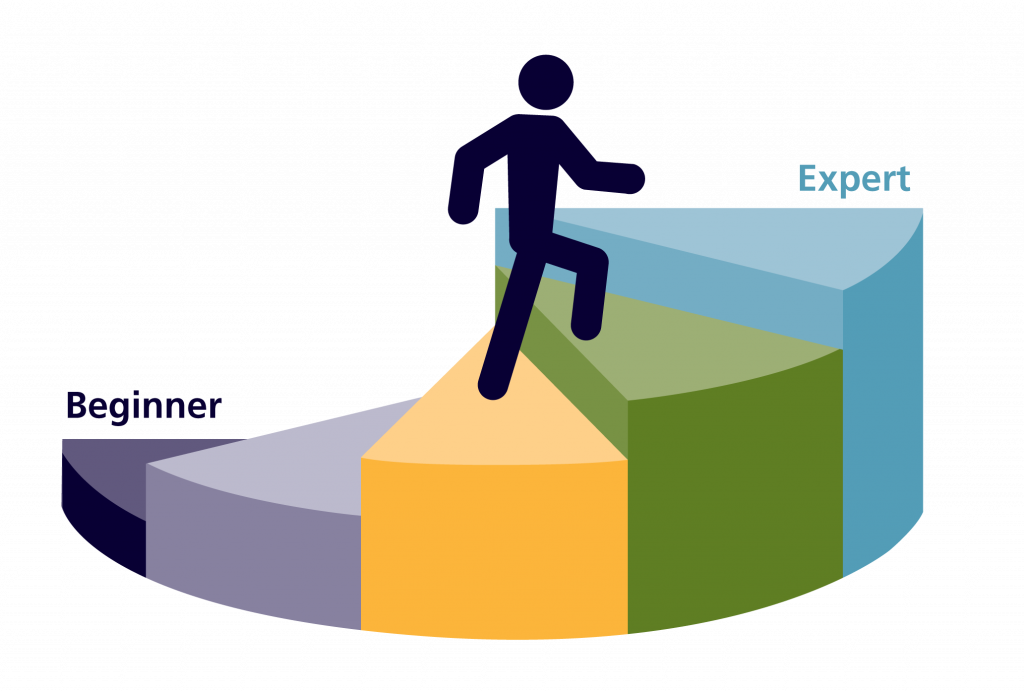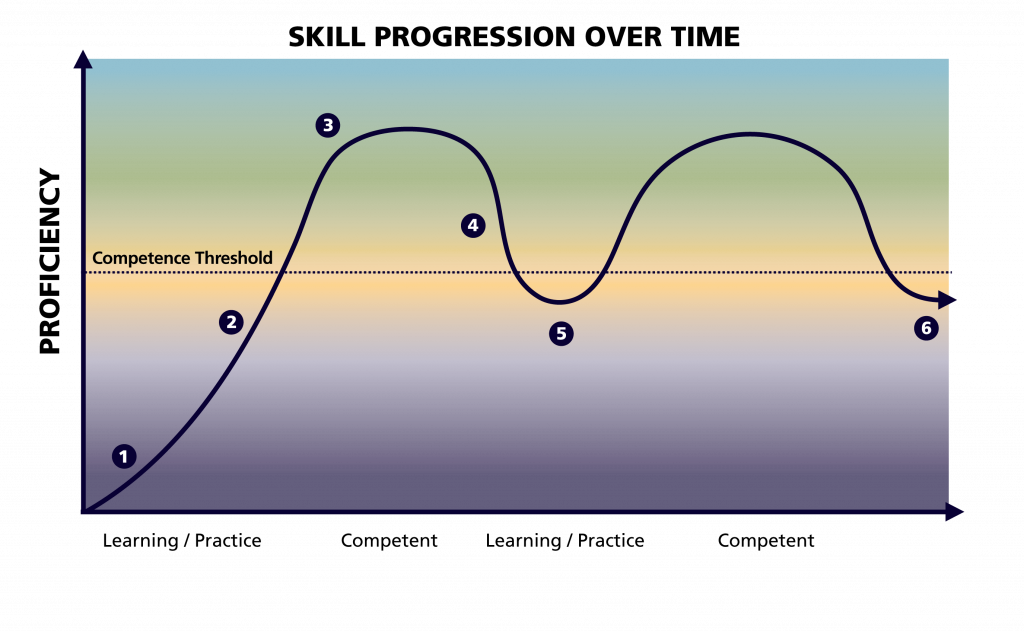2 How does competence change over time?
If there is one thing to keep in mind, it’s that competence itself is fluid and occurs as we learn to do things. There are many different descriptions of what that the journey towards competence looks like, but there are a few common themes on the continuum from beginner to expert (a proficiency scale).
- Competence happens on the journey between not being able to do something at all to being an expert.
- Learning and practice are required in order to develop from one end of the proficiency scale to another.
- Without continued practice, or if something dramatically changes with the activity or the context around the activity (such as changes in technology) there may be a need to learn and practice again to remain competent.
- Time is the biggest variable. Some things take years to learn and become proficient in, others are easier to master. In addition, everyone learns and develops their skills differently. For example, having related skills and knowledge to draw on can dramatically impact how long an individual takes to become proficient in something new.

Most models of skill acquisition look at proficiency scales as being linear, but in actuality, the journey can be more circular or branching, depending on a number of variables, such as complexity, pace of change, and the frequency that the activity is put into practice.
For example, let’s take a common activity that a large number of adults can do competently – driving a car – and see how this model of skill progression applies.
- First, you have to learn the rules of the road and the basic operation of the vehicle.
- Then you need to practice (usually in a supervised environment, with additional coaching) in order to develop the skills necessary to pass your driver’s test.
- If you drive regularly, you will develop those skills further, and learn to adjust for different road conditions, until the act of driving becomes extremely comfortable and almost routine.
- If you don’t drive for a long time, you will likely feel less comfortable, but are still able to drive safely.
- If something dramatic changes, such as you move to a different country where the rules of the road are dramatically different (such as driving on the other side of the road), you will need to do some additional learning and/or practice to be able to drive as competently in that environment. Or sometimes as we become more and more comfortable driving we become lax and require refreshing our knowledge and skills.
- Physical changes associated with aging may require you to take a driving test and possibly refresher training to maintain your license.
Keep this journey in mind (e.g. beginner to expert) as we look at how to develop a competency framework.
A system for measuring levels of proficiency. Proficiency scales may have a number of defined steps or stages or may be expressed in terms of a percentage compared to the highest level of performance. Proficiency scales are often used for formal assessment of practical tasks, when combined with defined performance criteria and rubrics.

